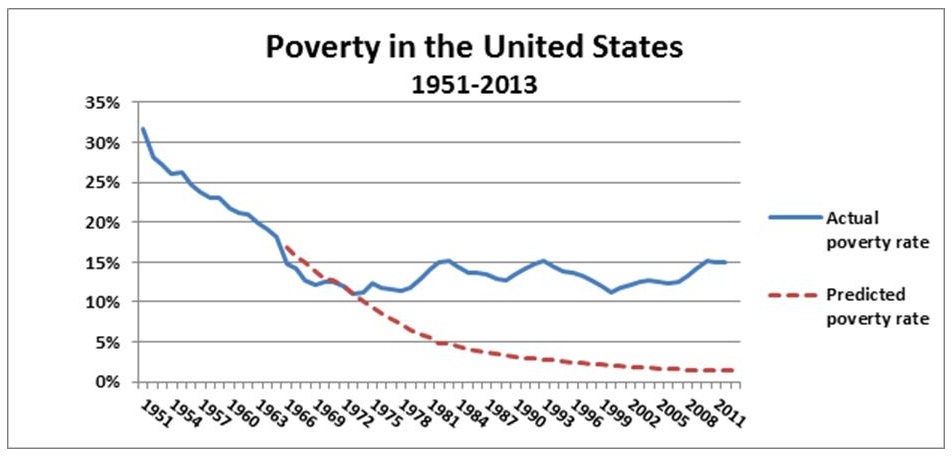John C. Goodman writes today of the poverty-enabling governmental “War on Poverty” in contrast with how economic growth was actually making significant reductions in the actual poverty rate.
From the end of World War II until 1964 the poverty rate in this country was cut in half. Further, 94% of the change in the poverty rate over this period can be explained by changes in per capita income alone. Economic growth is clearly the most effective antipoverty weapon ever devised by men.
The dotted line shows what would have happened had this trend continued. Economic growth would have reduced the poverty rate to a mere 1.4% of the population today ? a number so low that private charity could probably have taken care of any unmet needs.
But we didn’t continue the trend. In 1965 we launched a War on Poverty. And as the graph shows, in the years that followed the portion of Americans living in poverty barely budged. In 1965, 18% of the population lived in poverty. Today we are at 15%, or 50 million Americans. That’s after spending $15 trillion on antipoverty programs and continuing to spend $1 trillion a year.
Goodman goes on to discuss the large research literature — “almost all of it written by researchers who detested the outcomes” — trying but failing to prove wrong the popular wisdom wrong, i.e., unable to find that “welfare would not cause people to reduce their work effort, to get married less often, divorce more quickly or engage in other dysfunctional behavior.”
He also pointed out a fact that I discussed just yesterday in discussion private and charitable job-training programs, that poverty in America is largely self-induced. As he put it,
We now know a lot about how behavior affects poverty. In fact, if you do these four things, it’s almost impossible to remain poor:
- Finish high school,
- Get a job,
- Get married, and
- Don’t have children until you get married.
Cutting to the chase, Goodman asks:
If it is well established that self-sufficiency is closely related to working and being married, why are we “fighting poverty” by doing things that social scientists have known for decades lead to less work and fewer marriages?



